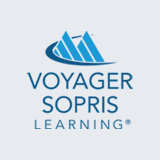Online Resources for Mastery Learning
Mastery learning is one of those buzzword phrases in education that pedagogists often toss about in an effort to define and refine good teaching practices. The term goes back to a true icon in the field of education, Benjamin S. Bloom, who suggested that all students can learn and achieve at high levels; they might just require different strategies and time in order to achieve mastery1.
Mastery is generally defined as “command or grasp of something”2. In an educational sense, mastery learning is achieved by an intentional strategy in which teachers decide on specific learning goals, make formative assessments to determine where teaching and learning needs to occur, provide directed instruction, and continue formative assessments and correctives until all students have achieved a preset level of mastery for the learning goals1. The concept of learning mastery is simple and nearly any educator would agree is desirable. The rub comes in the implementation. Mastery learning is hard work. Fortunately, today’s Internet resources provide a plethora of resources to help make the goal more attainable.
First of all, the Internet offers more professional development opportunities than any one teacher could ever use. When I entered the profession, I had subscriptions to three different professional journals. I remember trying to schedule the time to read each one cover to cover, but I rarely succeeded. The content was always first-rate, but often not what I needed at the moment. Now, if I’m struggling with developing higher-level questioning strategies, I Google it. I just tried it, in fact, and came up with 551,000 results in only 0.71 seconds. The greatest challenge is winnowing down the options to the most applicable for my needs. Teachers today have access to both paid services and free sites. Some of my favorites websites are:
Edutopia is a website created by George Lucas and Steve Arnold. Their vision statement reads: “Our vision is of a new world of learning based on the compelling truth that improving education is the key to the survival of the human race. It's a world of creativity, inspiration and ambition informed by real-world evidence and experience”3. I continually find short videos and research-based articles at this site that guide my practice as a teacher. A quick search on “differentiation” provided me with research, strategies, and models for implementing these strategies in my curriculum today.
Education World provides links to a wide variety of articles, PDF’s, and blogs that are timely and credible. I often find links to current events that affect educators, trends and recent research in pedagogy, and concrete ideas for day-to-day teaching. I especially love the provided templates that save time when working to differentiate instruction in a classroom.
Education Week offers a free subscription and articles include strategies for teaching Common Core, new research in all areas of education, and guides for high-quality digital curriculum.
Common Sense Education provides guidance for teachers attempting to access and integrate all of the fantastic online resources available. They provide online courses, but the most useful tool for me is the library of “Lesson in Action” videos, that let me peer over a fellow teacher’s shoulder to see how good teaching looks in real life. Just like my students, having a good model to start from makes the path to mastery much more accessible.
CommonLit is a free resource, partially funded by an education innovation grant from the US Department of Education, that allows teachers to create online classrooms and assign engaging and rigorous fiction and nonfiction texts to students with a few clicks. As a differentiating tool, teachers can focus on one theme or one Common Core standard, but choose different texts based on Lexile® range. All students will be reading quality material and working toward the same learning goal, but they do so at their own level. The clear and vivid analysis tools allow teachers to monitor entire groups and individual students closely, making changes to groupings as needed so that all students continue to progress. I have just discovered this tool, but I think it has huge potential for providing meaningful reading practice at levels appropriate for all students.
Voyager Sopris Learning sells curriculum and support for educators to help achieve student goals in literacy and math. They also provide free webinars, and extensive professional development resources and services.
The idea of mastery learning begins from the premise that all students start from different places and require different experiences in order to achieve success. That’s difficult to achieve in the traditional classroom with each student receiving the same printed assignment and the same amount of time to trudge through it. Internet resources can facilitate differentiation that really works for teachers and students. Clearly, differentiation is a huge challenge for time-strapped teachers, but these online resources can help. By investing some time in learning how to access these gold mines, educators can make learning time much more valuable for all students. Not only will our students be better able to achieve mastery, but we will as well. That’s an accomplishment that I think Mr. Bloom would applaud.
References:
1. Guskey, Thomas R. ASCD. "Lessons of Mastery Learning." Educational Leadership: Interventions That Work:. Web. 05 Nov. 2016.
2. “Mastery.” Dictionary.com. Web. 05 Nov. 2016.
3. "Vision and Mission." RSS. Web. 05 Nov. 2016.


